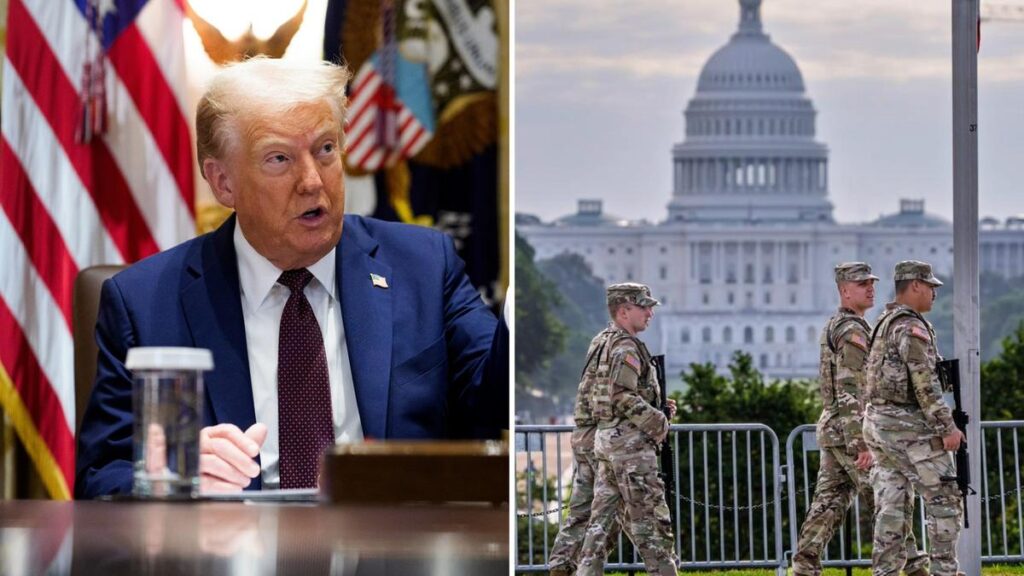
The US defence department will be renamed the ‘Department of War’ in President Donald Trump's latest effort to rebrand the nation's military.
UPDATE: In a striking move, President Donald Trump has officially renamed the Pentagon to the “Department of War,” an action that marks a significant shift in the U.S. military’s branding. This executive order, signed on July 15, 2025, aims to emphasize a new approach to military engagement, with Trump declaring, “It’s really about winning.”
This urgent change signals a major departure from the historical title used since 1949, when the name was altered to reflect a focus on conflict prevention during the nuclear age. The renaming reflects Trump’s ongoing efforts to reshape military identity, including the restoration of traditional base names following racial justice protests in 2020.
At a ceremony in the Oval Office, Trump stated, “It’s a very important change, because it’s an attitude.” The executive order grants Defense Secretary Pete Hegseth and other officials authority to adopt titles such as “Secretary of War” and “Deputy Secretary of War” in official communications, indicating a shift towards a more aggressive military posture.
The implications of this name change are profound. Hegseth, who has long advocated for the new title, emphasized, “We’re going to go on the offense, not just on defense. Maximum lethality, not tepid legality.” This shift raises questions about military engagement strategies and the implications for U.S. foreign policy.
Legislative support for this change is already gaining traction, with Republican senators Mike Lee and Rick Scott, along with House member Greg Steube, introducing a bill to formalize the renaming process. Despite holding slim majorities in Congress, Trump hinted that he may bypass traditional legislative routes, raising concerns about the potential for increased executive power.
Changing the Pentagon’s name comes with significant financial implications. A previous effort by former President Joe Biden to rename military bases honoring Confederate leaders was projected to cost the Army $39 million. Updating signage and documentation for the newly named Department of War could incur similar expenses.
Critics express concern that this name change could serve as an unnecessary distraction for military leadership. However, Hegseth argues that the rebranding aligns with a broader vision of a more assertive military ethos, stating, “Changing the name is not just about words – it’s about the warrior ethos.”
As this situation develops, the potential for legislative action and public response will be closely monitored. The renaming of the Pentagon to the Department of War is not just a title change; it represents a fundamental shift in American military philosophy that could reverberate across the globe.





